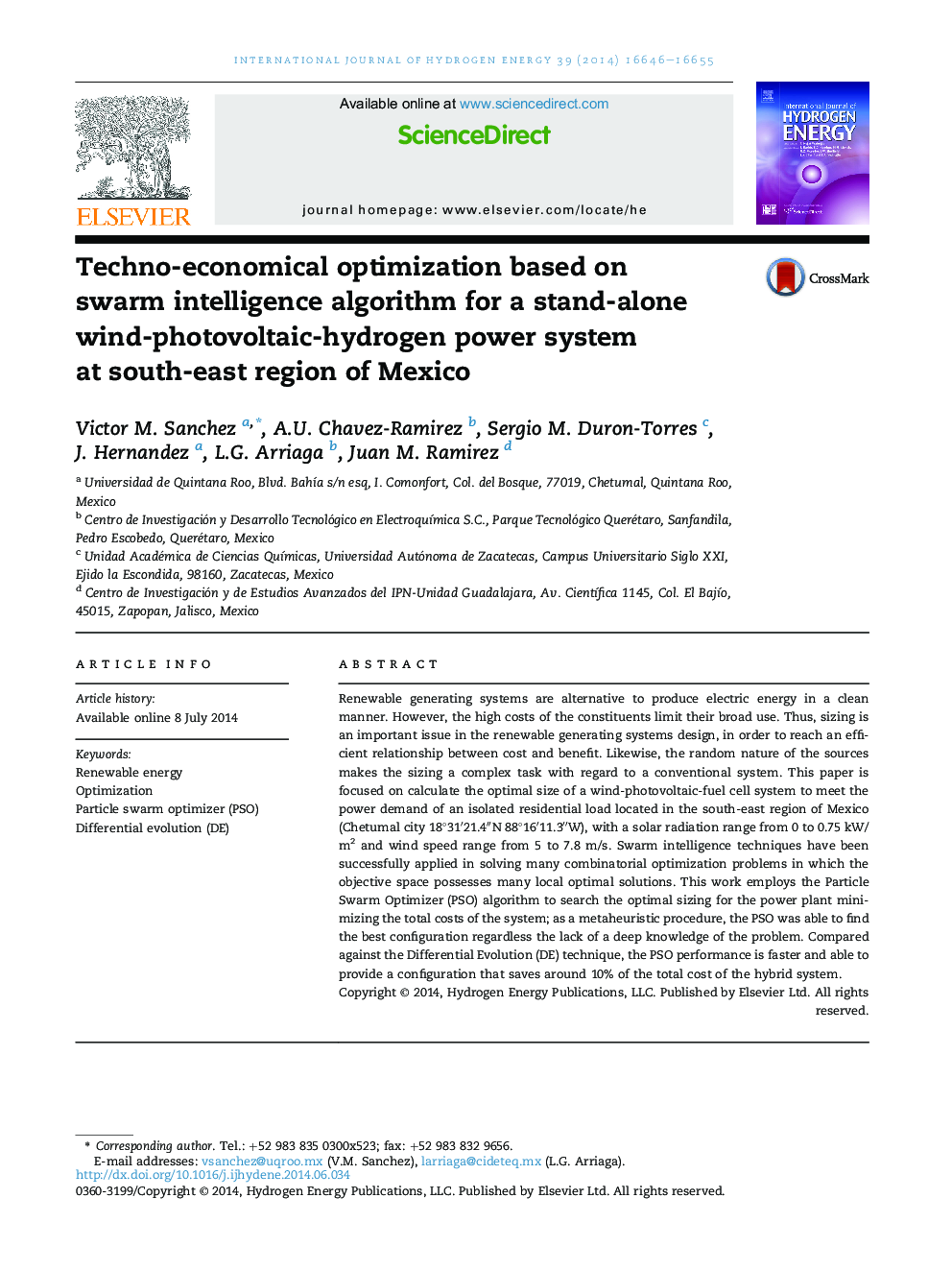| Article ID | Journal | Published Year | Pages | File Type |
|---|---|---|---|---|
| 1281006 | International Journal of Hydrogen Energy | 2014 | 10 Pages |
•Techno-economical optimization of a renewable generating system is proposed.•The optimization algorithm is based on Particle Swarm Optimization.•Renewable resources available on site changing in an important way.•The optimal sizing satisfy commitment between energy reliability and cost.•Optimizer proposed allows improve the efficiency of hydrogen hybrid systems.
Renewable generating systems are alternative to produce electric energy in a clean manner. However, the high costs of the constituents limit their broad use. Thus, sizing is an important issue in the renewable generating systems design, in order to reach an efficient relationship between cost and benefit. Likewise, the random nature of the sources makes the sizing a complex task with regard to a conventional system. This paper is focused on calculate the optimal size of a wind-photovoltaic-fuel cell system to meet the power demand of an isolated residential load located in the south-east region of Mexico (Chetumal city 18°31′21.4″N 88°16′11.3″W), with a solar radiation range from 0 to 0.75 kW/m2 and wind speed range from 5 to 7.8 m/s. Swarm intelligence techniques have been successfully applied in solving many combinatorial optimization problems in which the objective space possesses many local optimal solutions. This work employs the Particle Swarm Optimizer (PSO) algorithm to search the optimal sizing for the power plant minimizing the total costs of the system; as a metaheuristic procedure, the PSO was able to find the best configuration regardless the lack of a deep knowledge of the problem. Compared against the Differential Evolution (DE) technique, the PSO performance is faster and able to provide a configuration that saves around 10% of the total cost of the hybrid system.
